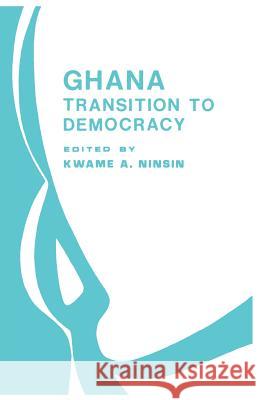Ghana: Transition to Democracy » książka
Ghana: Transition to Democracy
ISBN-13: 9782869780910 / Angielski / Miękka / 2002 / 264 str.
In 1993 a new democratic order was initiated in Ghana. In 1997 the elected Government ran its full mandate and was re-elected, for the first time infour decades. The authors in this volume question the prevailing trendsand tendencies in the country's democratisation process. Given its historyof incomplete transitions, a thorough analysis of the extremely complexnature of the Ghanaian transition process was needed to look at previousand existing orders. The papers in this collection identify and discussthe interplay of factors impinging on the current process: the intertwinedrelationships between economic and political liberalisations, theinstitutional and non-institutional structures in the emergence ofnational mass consciousness and movements, and the connections between themilitary, party politics and chances of sustainable democratictransitions.
In 1993 a new democratic order was initiated in Ghana. In 1997 the elected Government ran its full mandate and was re-elected, for the first time infour decades. The authors in this volume question the prevailing trendsand tendencies in the countrys democratisation process. Given its historyof incomplete transitions, a thorough analysis of the extremely complexnature of the Ghanaian transition process was needed to look at previousand existing orders. The papers in this collection identify and discussthe interplay of factors impinging on the current process: the intertwinedrelationships between economic and political liberalisations, theinstitutional and non-institutional structures in the emergence ofnational mass consciousness and movements, and the connections between themilitary, party politics and chances of sustainable democratictransitions.











